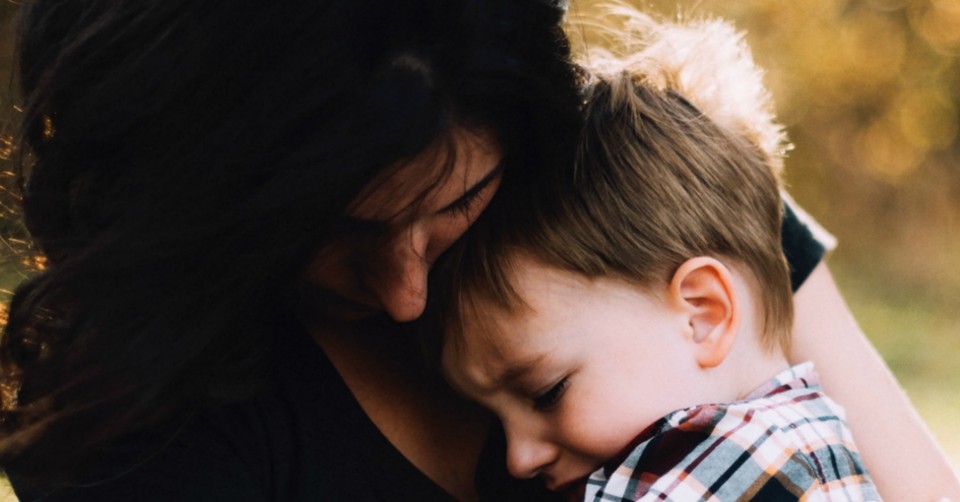4 Steps to Take When You've Blown It as a Parent

Wow. Blowing it as a parent. My greatest fear, my greatest mistakes on display for all you lovely readers.
When my kids were little, I wanted to be their sun, moon and stars. They thought I was wonderful and overlooked my many parenting mistakes. I still hear their little voices ringing in my ears, “It’s okay mama, I forgive you,” and whatever it was, was soon forgotten.
But as my kids grew older, forgiveness became harder to seek, harder to receive, and harder to extend. I fought indignation that they didn’t put into practice everything I taught them, and I tied this indignation to expectations that I wasn’t aware I had.
Somehow I missed adjusting to my kids growing older. My children didn’t stay children. They grew out of the simplicity of childhood and into the complexity of adulthood.
Taking time to process offenses is a byproduct of this journey. It’s my responsible duty as their mom to remember and adjust my responses.
I’ve blown it as a parent.
I’ve parented out of fear, which turned me into a control freak. I’ve overcompensated and didn’t give my children what they needed from me. I’ve invaded their privacy and hurt their feelings with a sharp, misplaced word.
I’ve jumped to the wrong conclusions which offended my children. These predicaments have left with these consequences: lack of trust and respect from my children. This is the exact opposite of what I’ve prayed for and worked towards.
My heart is bruised with disappointment, but I have a choice. I can give up because I’ve blown it or I can choose another way. God can redeem everything—even my mistakes in parenting so I choose redemption.
So, here are 4 steps you can take when you’ve blown it as a parent:
1. Confess
Humble ourselves and admitting wrong-doing is easier to say than to do. There seems to be some drive within us that refuses to admit when we do wrong.
We cover it up by pretending it away and ignoring it. Sometimes we refuse to acknowledge our culpability in the situation by saying, “I didn’t mean it.” We judge ourselves by our intentions, but others judge us by our actions.
Actions speak louder than intentions and we cannot use our intentions to sweep away someone’s hurt feelings.
Confession is the first step. We need to confess to ourselves, our children, and our God.
There’s a sense of freedom when we own our wrong-doing. We’re set free from the need to justify our behavior and we’re set free from the burden of perfection. No one is perfect in this world. No one. And who would want to be?
The burden would crush us and make us impossible to live with. The Bible tells us that if we say we’re without sin then we deceive ourselves. Confess sins. It’s good for the soul.
2. Forgive
The Lord’s prayer talks about forgiving our sins as we forgive our debtors. God forgives us. We forgive others and ourselves. But holding onto unforgiveness turns to bitterness and resentment in our lives.
It’s one of those things that harms us more than the other person. I don’t want that for myself or for my children. When we know the dangers of unforgiveness, we don’t want to let it fester and take root in our children’s hearts.
The last thing any parent wants is for their children to be bitter against them. Bitterness sours a relationship and chokes out any good fruit in our relationships.
Let’s take care of it right away.
There’s no reason to wait. “If we confess our sins, he is faithful and just to forgive us our sins and to cleanse us from all unrighteousness,” 1 John 1:9. There’s a cleansing when we extend forgiveness and declare that we need forgiveness.
Let’s choose to recognize our need for forgiveness when we’ve blown it as a parent. We will blow it, but it’s what we do with it that determines the future relationship between us and our children.
3. Obey God’s Word
God values obedience and it provides us with many blessings.
1 John 2:5 tells us that if we love God then we obey God. We have tendencies determined by personalities, life experiences, and family of origin. We have cute little habits or pet peeves, depending on their perspective, that either endears us to our children or drive us away from them.
But there are other behaviors that reveal a lack in our heart. They are the sins of a sharp tone, words that tear down instead of build up, and actions that run contrary to kindness and love.
These tendencies land us in the need for transformation that Romans 12:1-2 references: “Therefore, I urge you, brothers and sisters, in view of God’s mercy, to offer your bodies as a living sacrifice, holy and pleasing to God—this is your true and proper worship. 2 Do not conform to the pattern of this world, but be transformed by the renewing of your mind. Then you will be able to test and approve what God’s will is—his good, pleasing and perfect will.”
When we’ve blown it as a parent, not only do we need to apologize, but we need to make adjustments in our behavior so that our behavior aligns itself with God’s word.
The same words we turn to for relationship help in the body of Christ apply to relationships between parents and children. We put off our old ways and put on God’s new ways (Colossians 3:1-17).
We let go of anger, rage, malice, slander and filthy language and we put on compassion, kindness, humility, gentleness, and patience. We let the spirit of God do its refining work in our humbled hearts so that our actions change.
4. Restore
Restoration takes consistent time and effort. Once we’ve blown it as a parent, we need to be quick to confess, receive forgiveness, and align our behavior with God’s word.
Then we need to give our children time. It helps to think about our experiences with people who’ve wounded us by their words or actions.
It takes time to process offenses. The hurt that rests in hearts affects how we see each other, and time, coupled with forgiveness, brings us to a place where we see contrite and humble hearts rather than hurtful actions.
Our children, no matter the age, are individuals with a mind, will and emotions.
We get the amazing privilege to influence them, to help them spread their wings so they fly, to support them in their passions and dreams. Yes, sometimes we hurt them by our inattentiveness, our lack of support, or by our over-reactions to their behavior and choices.
We will blow it at some point in our parenting journey and have collateral damage. A wounded heart takes time to heal, but through consistent behavior aligned with God’s word, restoration happens.
A heart is healed and relationships strengthened.
A parent who blows it has a wonderful opportunity to model these steps to restoration: confession, forgiveness and obedience.
By modeling what this looks like, a child learns the power of a humbled heart that owns its offensive actions in order to experience God’s transforming power that changes our relationships for the better.
Jessica Van Roekel leads worship in her local church and writes at www.welcomegrace.com. She believes that through Christ our personal histories don’t have to define our present or determine our future and writes about the transforming power of grace. Jessica lives in a rural setting surrounded by farmland and her husband and children. You can connect with her on Instagram and Facebook.
Photo Credit: ©Unsplash/Jordan Whitt

Originally published March 02, 2022.




